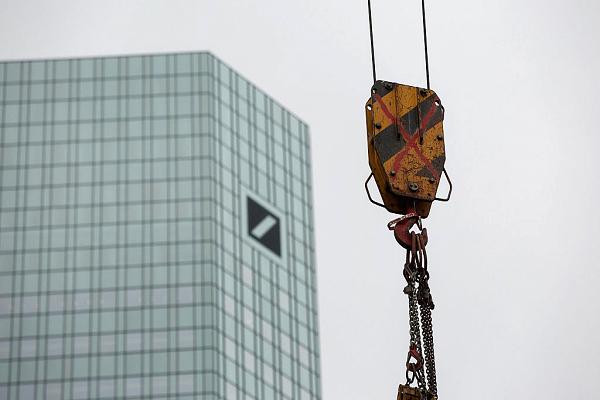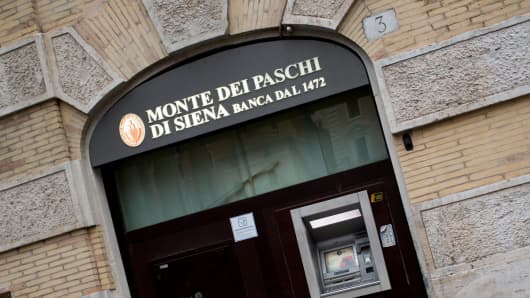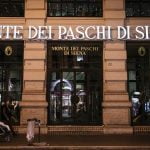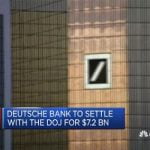Deutsche Bank will be hoping for a fresh start in 2017 after reaching a $7.2 billion deal with U.S. authorities to settle allegations of the mis-selling of mortgage-backed securities (MBS).
Germany’s largest lender said on Friday morning it had agreed ‘in principle’ to pay a $3.1 billion civil fine to be supplemented with the payment of $4.1 billion in consumer relief overtime.
The announcement of the fine comes amid a raft of banking stories related to the mis-selling of MBS which hit the wires before Friday’s European market open. This included news that U.S. federal prosecutors would sue Britain’s Barclays bank and that Credit Suisse had reached a provisional $5.3 billion deal, meaning the Swiss bank will take a pre-tax charge of about $2 billion.
Of the total amount demanded of Credit Suisse, $2.48 billion would be an immediate fine to settle the claims and an additional $2.8 billion would be paid over five years for consumer relief.
Deutsche Bank’s agreement follows months of negotiations with the U.S.’s Department of Justice (DoJ) and ranks as the third-highest penalty imposed to date on a bank to settle claims of mis-sold mortgage-backed instruments.
Although the $7.2 billion payment is far from negligible, investors may take some cold comfort from the fact it is less than $16.7 billion that Bank of America was required to stump up in August 2014 and the $9.0 billion charged to JPMorgan Chase in November 2013.
Furthermore, of the full amount, only the $3.1 billion civil fine component is required to be imminently delivered in cash.
The full penalty measures approximately half of the $14.0 billion figure claimed by the DoJ in late September, which spooked traders into sending the German bank’s share price to a record low of 10.55 euro ($11.02).
Since that nadir the stock has staged a bounceback to the tune of 68 percent to Thursday’s close, although it still languishes over 20 percent below its price at the start of 2016.
According to Filippo Alloatti, senior credit analyst at Hermes Investment Management, this settlement is important as it has come in a low lower than the worst case scenario.
“For Deutsche Bank, it’s a relief to be rid of such an overhang. Now back to executing and tweaking the strategy please,” he told CNBC via email.
Gildas Surry, senior analyst at Axiom Alternative Investments, agreed that it draws a line under the worst of the issues – namely, significant uncertainty – that had plagued the bank’s management. Although pointing out that the German lender still faced litigation relating to trades in Russia and the potential for a seasonal increase in restructuring charges within fourth quarter results, he said his team viewed the outcome as very positive for Deutsche Bank.
“It will give them the flexibility to continue paying coupons on their hybrids and the debt metrics will normalize promptly,” he explained.
Meantime, Italy overnight approved a 20 billion euro ($20.9 billion) rescue package for crisis-hit Italian banks, with beleaguered Banca Monte dei Paschi di Siena set to be the first patient attended to by the government’s new fund, following admission that its hopes to raise 5 billion euro from private investors had failed.
Paul Donovan, global chief economist at UBS Wealth Management told CNBC’s Squawk Box on Friday morning that there was an interesting contrast between the situation of banks in Germany and Italy.
“Both countries have banks in problems but if you see what is going on in Germany, banks are still lending. As an economist that’s what I care about,” he noted.
“As individual banks, do what you like, but what I am interested about is do we have credit going into economy? Is this supporting normal activity? Whatever is going on with the German banking system, they are still supporting the economy. Italy is rather depressing to look at,” Donovan concluded.
source”cnbc”






